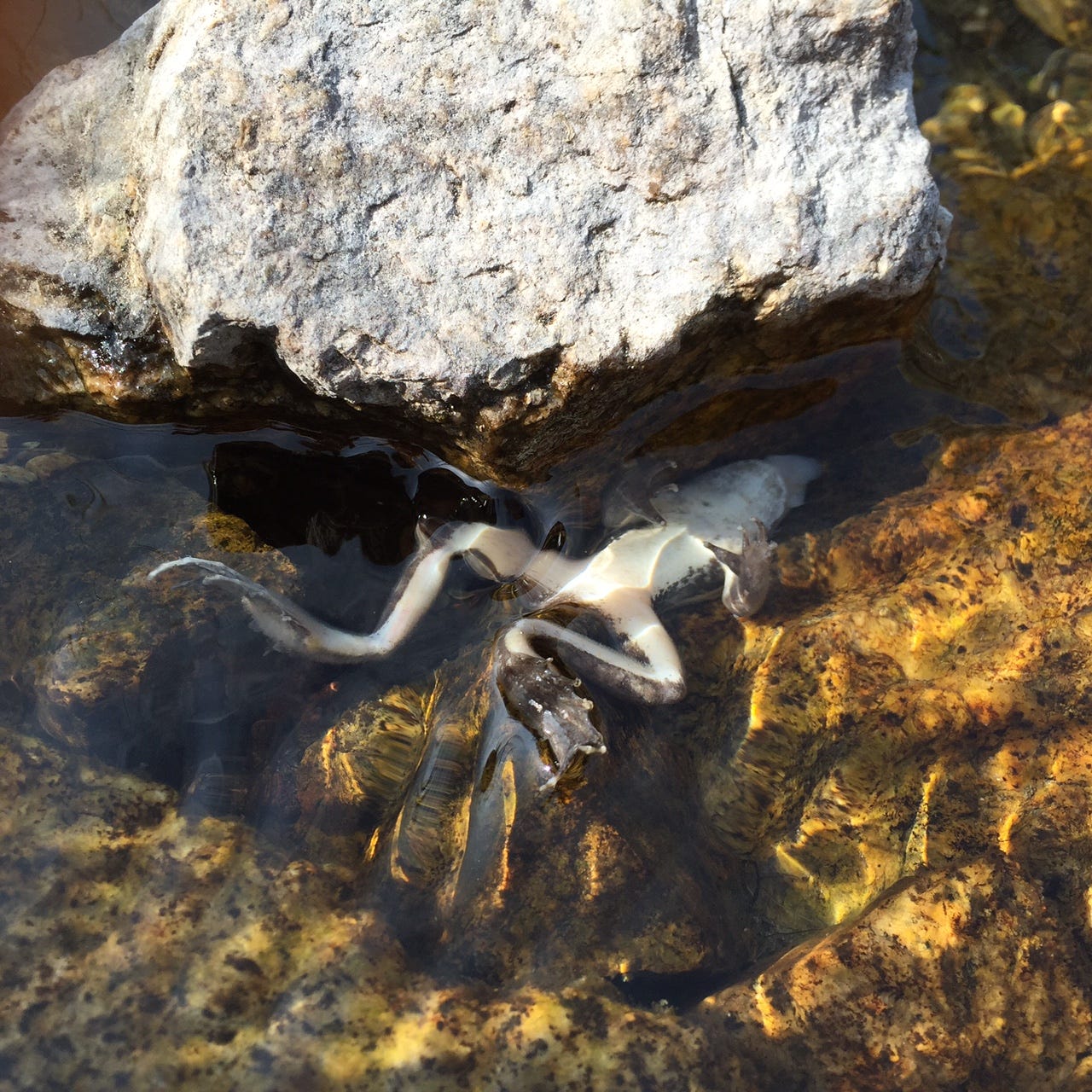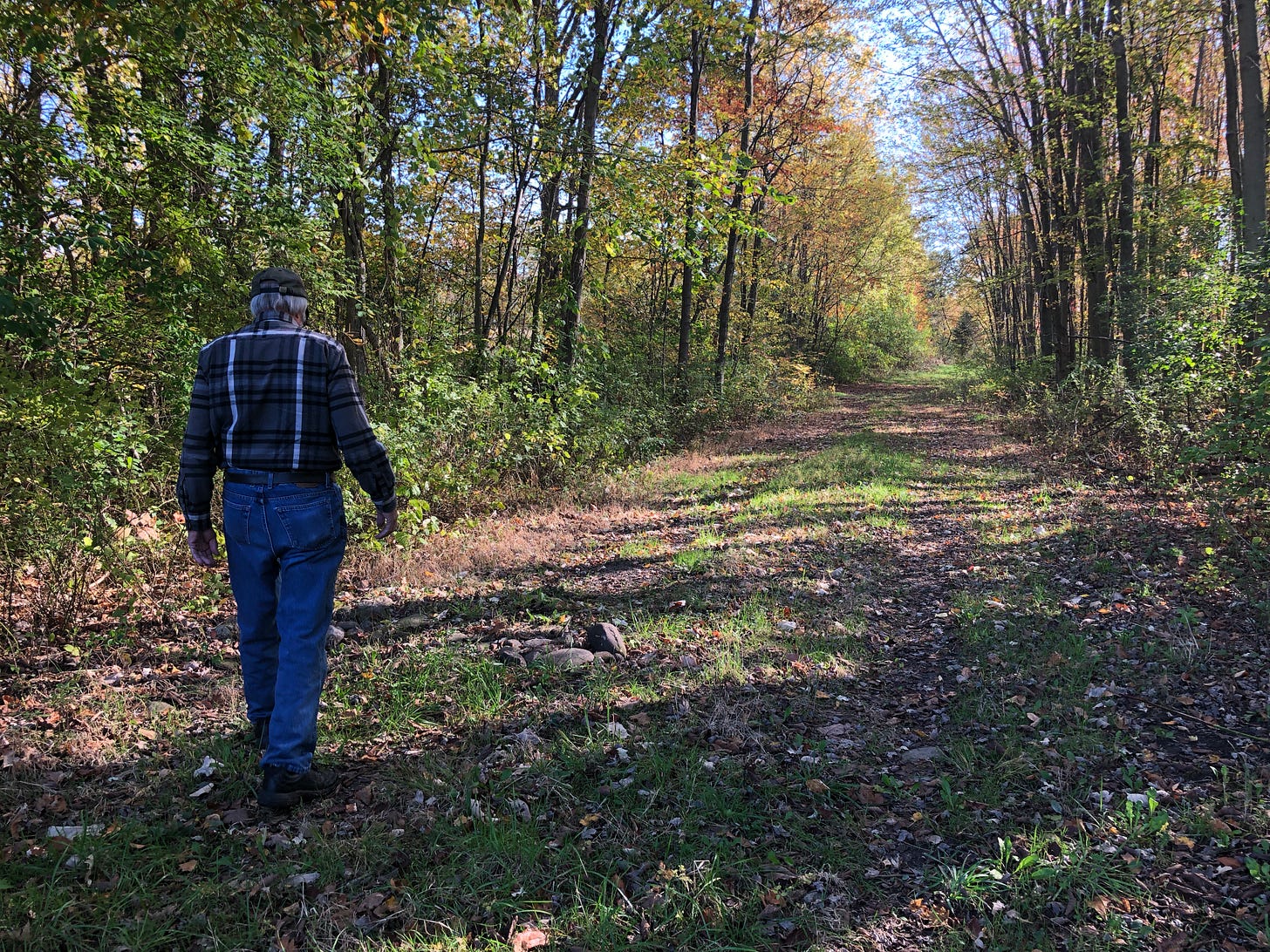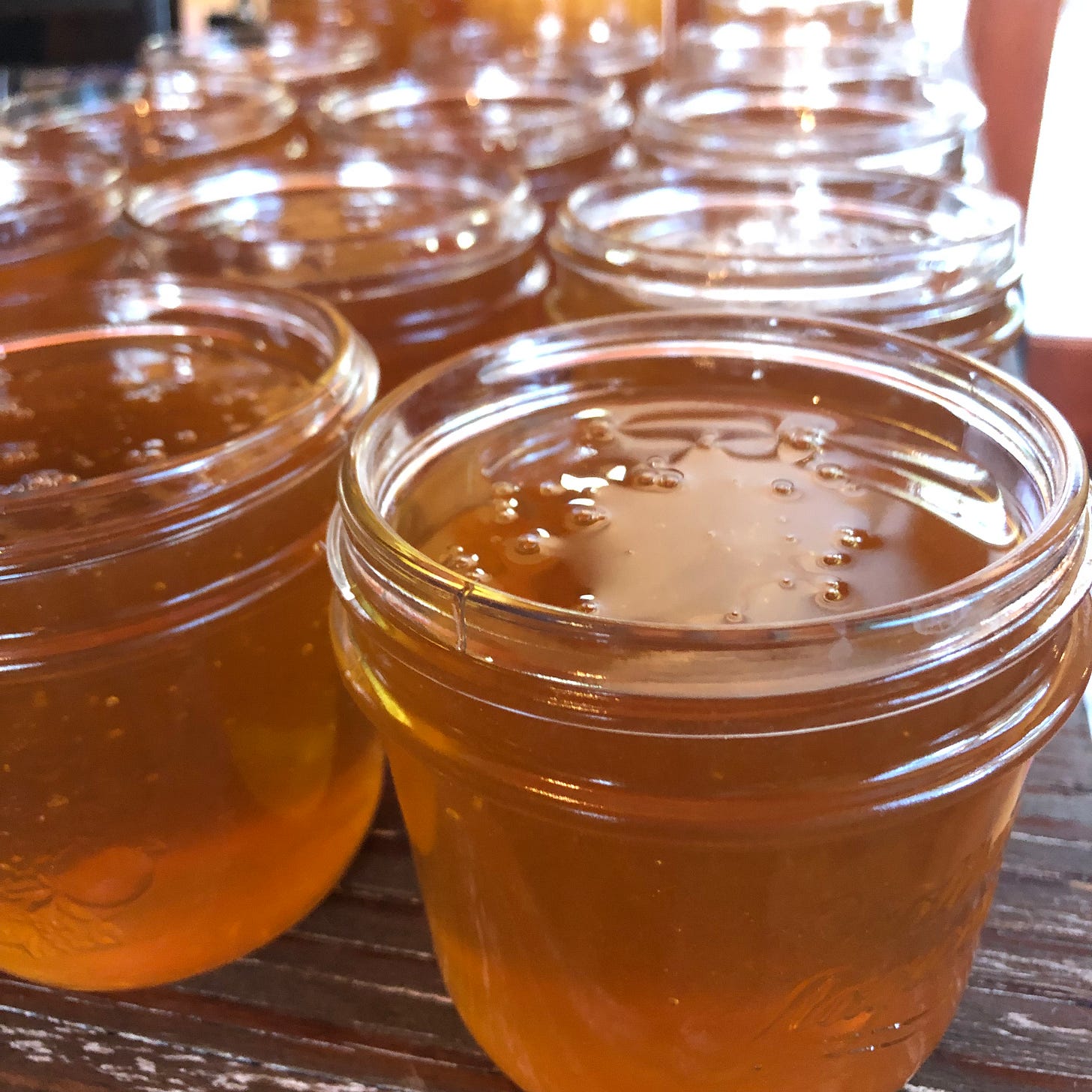Intellectual humility and the quest for truth
Science is a doubt process, not a belief system--and that's a good thing
I sometimes scrutinize science and scientists because, as an occupant of the scientist boat, I know we can do better and I want to explore how we might accomplish that.
It’s not easy, though—we can be sensitive and defensive because we are human. We’ve also been conditioned to believe that it’s not a good idea to admit when we are wrong.
But this has dire consequences: when we don’t publish our negative findings, for example, it skews the scientific literature, producing a misrepresentation of reality.
I keep returning to the concept of evolving our modes of thinking—from the kind that created the myriad problems we face, toward those that will enable us to effectively address them.
These shifts can offer us resilience and adaptability for an uncertain future.
“The significant problems we have cannot be solved at the same level of thinking with which we created them.”
– attributed to Albert Einstein
But it’s going to require that we have the ability to admit when we’re wrong. Neither academia nor society at large, unfortunately, reward such behavior.
In a culture where only self-assuredness will do—even if it is not warranted, we should fake it until we make it—the cautionary approach may be perceived as weak or ineffective.
But that perception doesn’t make it so.
Confusing science with value judgments
Some believe science and scientists to be infallible. This thinking is problematic because it reinforces science as a belief system, which may tempt some scientists to become defenders of “their cause” rather than seekers of the truth.

As I wrote recently, a defensive response is understandable, especially in disciplines—such as the natural sciences—which are increasingly dismissed and defunded1.
Some scientists may feel the need to defend their previous research findings, even as new evidence mounts that those findings are no longer valid.
In the late 1990s/early 2000s it became increasingly clear that a newly discovered amphibian chytrid fungus was causing catastrophic amphibian declines and extinctions around the world.

There was resistance to this revelation by some researchers, however, because it meant a radically new worldview would be required in order to proceed in amphibian science and conservation.
In the past, disease had been generally understood in ecology as a natural process that didn’t have much of anything to do with conservation.
As time and research progress, however, we are learning that human actions impact the spread and severity of wildlife-sickening pathogens, devastating some populations.
Denial persists in a few scientific corners today, despite substantial evidence for pathogens’ pervasive effects. Why?
Scientists are imperfect human beings (like everyone else) and sometimes (or often, depending on the person) can be self-serving.
A flawed academic reward system practically demands severely self-serving approaches to research (especially publishing).
Truths can be inconvenient, even for the truth-seekers.
Nature deficit disorder
Compounding the above is another—mostly solvable—problem:
Basic biology—once as accessible as the backyard pond—has become increasingly exotic in a world where nature and its societal valuation are in severe decline.
Two examples from my own experience with this latter phenomenon:
A 35-year-old, well-educated person asked me if frogs were animals. When I said “Yes—what else would they be?” they replied, “I don’t know—insects?”
A 20-year-old biology major was shocked and horrified when I explained—as I was teaching in anatomy lab—that the meat they eat does, indeed, come from muscle, just like those of the rabbit on the dissecting tray in front of us.

The result: Science as an interest group
A relatively recent dearth of proper education in general biology at the secondary level created a petri dish within which vaccine misinformation could grow. It led many people away from trusting science and scientists, choosing instead to believe conspiracy theories and pseudoscience.
Politics undoubtedly had a lot to do with the subsequent polarization that took place, but the conditions for this outcome were sown decades earlier by an education system that began to devalue the natural sciences.
The refusal of the public to accept scientific evidence in favor of the opinions of their favorite podcaster has been devastating for some scientists—many of us, actually—because our dogged search for truth has suddenly been culturally relegated to the level of a subjective belief system.
In light of this, it’s understandable that scientists would want to double down on what they know to be true, adhering to their understanding of the world like a life raft in an abysmal sea of unsubstantiated doubt.
When we give in to that urge too intently, however, we may lose our way. This can weaken, rather than strengthen, science. It can further erode public trust. At worst, we can become that which we reject.
When we see others as the enemy, we risk becoming what we hate. When we oppress others, we end up oppressing ourselves. All of our humanity is dependent upon recognizing the humanity in others.
- Desmond Tutu
One scientist’s derailment
Evolutionary biologist Richard Dawkins’ book, The Selfish Gene 2 3, clicked evolutionary theory into my mind in a way that stuck. This was true for many, and the book thus became immensely popular.
Unfortunately, in response to incessant attacks by religious fundamentalists due to the widespread popularity of his book, Dawkins’ career mission derailed into a counterattack on creationism.
It was no doubt difficult for Dawkins to face the onslaught of criticism and hate mail, and I can only imagine what else, from staunch detractors of his work. Still, he was in a position to take the high road, and opted out.

When I went to see Dawkins speak on the UC Santa Barbara campus, a handful of creationists were picketing, mostly peacefully, outside the auditorium. Some attendees (presumably students/scientists, but I don’t know for sure) gave in to jeering at them.
Responding in this way debases science to the level of fundamentalism and reinforces the idea of science as a belief system rather than the fact-finding mission that it actually is.
This fact finding is based on the premise of doubt—which is baked in to the scientific method intentionally. But this otherwise healthy doubt can get misused.
Doubt gone sour

Doubt makes science vulnerable in a world where beliefs drive the choices we make—from the polls to the paper products aisle.
Etymologically, doubt comes from the Latin dubitare, meaning “to question, hesitate, or waver in opinion.”
Doubt has become a tricky word for science and scientists, because its inherency has been exaggerated in order to give the impression that it’s more widespread when it’s really quite marginal.
Some entities—those Merchants of Doubt, from Big Tobacco to oil companies—have benefited immeasurably from sowing unsubstantiated doubt in scientific discussions, stirring “debate” when there really isn’t much, or any.
The both-and part
And yet, scientific institutions and procedures cannot be unassailable. When they are, it undermines the very nature of science itself.
Doubt must stay, or science wouldn’t be science.
When some scientists become advocates for that which only benefits them personally, the ideal4 of an objective search for truth that is at the foundation of science erodes.
Brian Resnick recounts in his excellent article on intellectual humility:
Even among scientists — people who ought to question everything5 — intellectual humility is hard. In some cases, researchers have refused to concede their original conclusions despite the unveiling of new evidence. (One famous psychologist under fire recently told me angrily, “I will stand by that conclusion for the rest of my life, no matter what anyone says.”)

Adherence to ideology in spite of evidence to the contrary can lead to a lack of imagination that holds science back from coming up with novel solutions to the planet’s most pressing crises.
Currently many “solutions” are actually worsening the problems we face. In ecology, this phenomenon stems from entrenchment in ideology combined with nature illiteracy (more on this in a future edition of Hopecology).
Still, most scientists are interested in doing the right thing. That includes maintaining a culture of scientific integrity that is independent of ideology.
The hope part: taking action
Hope is about empowerment to act. What can be done?
Everyone—not just scientists—can contribute to a world that is more curious than defensive at the start.
Some suggestions for what could be useful:
Listening. Am I listening to be offended, or to understand?
Compassion. Yes, sometimes people’s misinformed opinions can be infuriating. But they are usually so angry or opinionated because they are hurting. What might be underlying that hurt? Being dismissed, feeling like they’ve been lied to, not knowing whom to trust? What if instead a scientist or nature lover tried to build a foundation of trust with them?
Respect. As abhorrent as someone’s opinions may seem to me, can I disagree with them while also respecting their right to think what they want? Do we have anything in common? (See building trust, above).
Educate, kindly. Nature literacy is often not learned in the classroom. Many people today did not have the experience of running free in open fields and catching frogs as children. Can I offer to take a walk with them outside?
Equanimity. Are there other possible explanations for what I think I’m seeing or understanding that can help me balance my emotions? (See a previous Hopecology post about this concept.
at also offers two comfortingly unintuitive approaches to equanimity).What if I’m wrong? This may be the hardest of all, because it goes against our cultural reward system. Some people are more culturally conditioned to doubt themselves than others; they may doubt themselves too much. But I can attempt to honestly look at my convictions: do I know them, for certain, to be true? What evidence am I using?
Can I go easy on people who admit they are wrong? Can I even celebrate it, instead of jumping on the bandwagon of punishing them for appearing so “weak”? On the contrary, it takes tremendous courage to admit errors. We can all help create the cultural shift toward admitting we are wrong when it’s warranted.
I started Hopecology because so many people were asking me—an ecologist—what they could do about the devastating state of the environment.
Everything that can be done within one’s reach—however seemingly small—counts.
Hard conversations count. Every nature walk—where you drink in the beauty that is still here, despite all that has been lost—counts.
Inviting your insufferable climate change-denying neighbor on that walk—counts (DOUBLE or more).
Please let me know in the comments: what would you add?
If you aren’t aware of what is going on with the closure of the Duke Herbarium, check it out. This defunding is a hot topic in the natural sciences currently, and a prime example of the devaluation described here.
40 years on, the theory in the book—that the gene alone is driving all evolution by an inherent program of replication—is increasingly understood as a reductive oversimplification of the complexity of life and is therefore likely erroneous.
The links to books in this post go to the Hopecology Bookshop storefront, where a small portion of the proceeds from each book sold go to independent bookstores and to supporting Hopecology.
This is only an ideal because true objectivity cannot exist. But it provides a compass direction.
Emphasis mine.







I love that you apply compassion: "sometimes people’s misinformed opinions can be infuriating. But they are usually so angry or opinionated because they are hurting. What might be underlying that hurt?" And that you say even tiny actions can contribute to healing. Yesterday, as I checked out at the Food Coop, the clerk said, "You're the person who lives an hour away and talks to herons and feeds eagles." I was able to say that I don't feed eagles, or any bird other than by encouraging native plants, and that we have so many eagles here because of Plainfin Midshipmen, a fascinating species. I told him that David Attenborough's crew filmed these amazing creatures for twelve weeks on "my" property/seashore, and that they'll appear and sing in an upcoming Netflix documentary about animal sounds. I hope everyone else can be as in love with learning about our world as I've always been, which is part of what you're saying in Hopecology. Thanks, Andrea for what you do!
I really appreciated how clearly you broke this all down - these issues get so thorny and convoluted and you offer a nice survey of it all, and without leaning into doom. The "both and" frameworks is so helpful here and I've always found it challenging that scientists shy away from it. I would only add that when choosing to have hard conversations it is also important to be aware of your own safety and capacity, you make the most impact when you understand the limits of your own energy and patience, and when you don't have to worry about getting into an even more nasty/aggressive conflict.